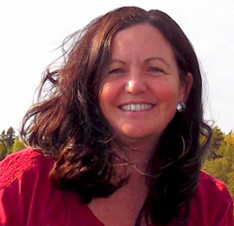As a young Catholic girl fascinated with the stories of saints, I anxiously awaited “the call” – perhaps a burning bush or the voice of angels breaking through the heavens. I ached for a sign that would show me I, too, had a part to play in the world. Little did I know as a fledgling bird that there would be not just one sky, but many skies where I would try out my wings and know the joy of feeling useful. Now, in my early sixties and having been diagnosed with an incurable (but treatable) cancer, I am still like that child, wondering what future skies I will know in the remainder of my life. I take solace from knowing a few things I did not know then. Among them are the following:
Working in a “purposeful profession” does not always mean that we are fulfilling the purpose calling to us
I have met many people who work for schools, agencies or organizations involved in the noble and challenging work of helping people enter (or re-enter) the world of work. Unfortunately, many of the people I meet express (or reflect) that they feel burned out, discouraged and disheartened. They look tired, not just around the eyes, but in their spirits – as if nursing a broken wing.
I recall hearing a definition of “burnout” as the result of trying to give what we do not ourselves possess. From this perspective, while burnout is a state of emptiness, it may not result from giving all we have; rather, it may reveal the hollowness of the place from which we were trying to give. Just because we are in a service role does not mean that we are connected to the way we are meant to serve. For example, the person who is meant to be a teacher but is working as a social worker, or the social worker who finds herself in the role of bureaucrat – it’s like asking an apple tree to produce lemons. Like the tree, we will exhaust ourselves trying to produce something that goes against our nature.
I have totally relished my role as a keynote speaker and a trainer in the career development field for almost three decades. As I begin to accept the physical limitations brought on by cancer, however, I have to ask myself if this will continue to be my role, or if I am being called to another form of work. I do not yet know the answer to that question, but I would be doing an injustice to myself and to my audience to not engage it fully, with a sincere and open heart. Sometimes our purpose is seasonal, but it doesn’t mean it’s gone; it’s just in transition.
We need to be responsive to the simpler, ongoing calls that spring from a purpose-filled life
Living a life of great purpose is not reserved for a lucky few – for the divinely inspired, the extremely powerful or the uniquely talented. Playing a part that we deem meaningful is the birthright of every human being, whether we use our gifts changing public policy, delivering a warm meal to elders in the community, or teaching our children to love themselves and the world. If you look back on your life, I think you will see that you have been moved to fulfill some purpose not once, but over and over, if only in small but meaningful ways. For instance, giving a client that extra 10 minutes because she needed it, providing an opportunity for a student to learn something in a hands-on way, even when it was not convenient for you, or going the extra mile with an employer by extending your support to an employee who is not officially on your caseload. These seemingly “small moments” of purposefulness add up in bigger ways than we can imagine.
We need to be responsive to the purposes that choose us
Rather than seeking our purpose, sometimes our purpose finds us! Think back on the times in your life when you felt called to serve, to give or to make a difference in someone else’s life. Those calls probably didn’t come in the form of a burning bush, but a burning desire in your own heart to respond to someone in need, to speak up in a situation or to simply play a role that you knew you had to play – whether or not you asked to play it. Learning to listen to the promptings within our own hearts is essential to living a purpose-filled life, as we are the only ones who hold the key to unlock that particular treasure. In the words of Rainier Marie Rilke from his book Letters to a Young Poet, “Think of the world you carry within you … Be attentive to that which rises up in you and set it above everything that you observe about you. What goes on in your innermost being is worthy of your whole love and attention. You must somehow keep listening and responding to the inner call.”
“Learning to listen to the promptings within our own hearts is essential to living a purpose-filled life …”
Believing that we have a purpose is the first step in discovering what it is. What if we were to assume that we are called in every situation, in every role in life? What if we thought of purpose as a current in the river of our lives, much like blood in our veins? Maybe we don’t need to create it as much letting it find us. We need to hear the voice of purpose calling above the insistent voice in our own heads that chides us into believing that with so much yet undone, we can’t afford the luxury of paying attention to purpose or to passion.
In 30 Ways to Shine: A Guide to Job Retention, I encourage all employees to look beyond the surface interpretation of their jobs to the underlying meaning or purpose of what they are doing. For instance, the receptionist at a doctor’s clinic who feels pride in the important work of keeping her community healthy or the food service worker who believes that everyone deserves a wonderful dining experience, even in a school cafeteria. For those looking to know their purpose, I would simply ask: on the level of management, the customer, the community and/or your school or agency, how many purposes are you simultaneously serving in the role you play?
We know the truth about the call to purpose. We belong to the open spaces, not for the sake of heights, but for the joy of having wings. May our highest purposes call to us in such a way that we enter those pieces of sky that we know are uniquely ours.
This article was originally published on ContactPoint on Sept. 19, 2018.





